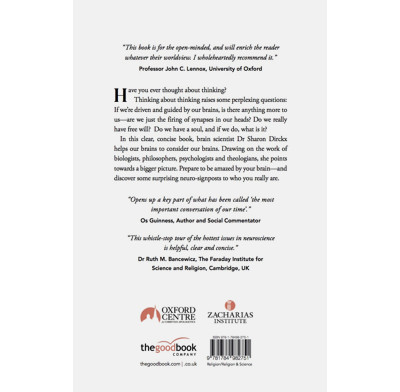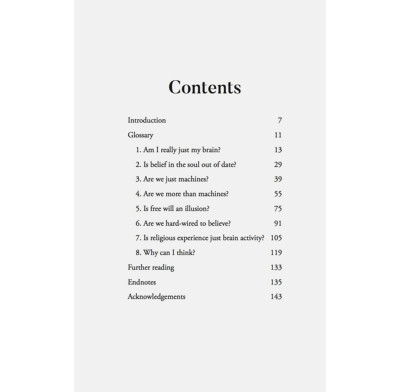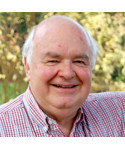


Looking at the body, mind and soul to answer the question: What exactly is a human being?
Part of the Questioning Faith series.
Modern research is uncovering more and more detail of what our brain is and how it works. We are living, thinking creatures who carry around with us an amazing organic supercomputer in our heads.
But what is the relationship between our brains and our minds—and ultimately our sense of identity as a person? Are we more than machines? Is free-will an illusion? Do we have a soul?
Brain Imaging Scientist Sharon Dirckx lays out the current understanding of who we are from biologists, philosophers, theologians and psychologists, and points towards a bigger picture that suggests answers to the fundamental questions of our existence. Not just "What am I?", but "Who am I?"—and "Why am I?"
Read this book to gain valuable insight into what modern research is telling us about ourselves, or to give a sceptical friend to challenge the idea that we are merely material beings living in a material world.
Introduction
1. Am I just my brain?
2. Is belief in the soul out of date?
3. Are we just machines
4. Are we more than machines?
5. Is free will an illusion?
6. Are we hard-wired to believe?
7. Is religious experience just brain activity?
8. Why can I think?
| Contributors | Sharon Dirckx |
|---|---|
| ISBN | 9781784984038 |
| Format | eBook |
| First published | May 2019 |
| Language | English |
| Publisher | The Good Book Company |

Sharon Dirckx has written an excellent primer on the challenging subject of human consciousness. In this marvellous little book she has defined and discussed the major topic points with clarity, and skilfully makes difficult concepts easier to understand. The result is a solidly presented case for our minds being more than just our physical brains. It examines questions that neuroscience can’t answer such as why we can think, and how this ultimately points us to the reality of a creator God. I love the way the book ends with an exhortation to ask questions and points to useful resources to help seek answers. Thoroughly recommended!

Dr Dirckx is well qualified to investigate the question that forms the title of her book. She illuminates the widespread reductionist notion that the brain and the mind are the same and shows that it depends more on a presupposed naturalist or materialist philosophy, than it does on actual science. The author introduces us to the intriguing yet difficult problems of the nature of consciousness, free will and determinism and convincingly demonstrates that naturalism does not have the explanatory power that the Christian worldview possesses. This book is for the open minded, and will enrich the reader whatever their worldview. I whole heartedly recommend it.

Laying out the arguments in her usual very readable style, Sharon makes a compelling case for why the answer to her book’s title [spoiler alert!] is “No”. Whether you agree with her conclusions or not, this whistle-stop tour of the hottest issues in neuroscience is a helpful, clear and concise summary of the different philosophical and theological positions, and the latest scientific data.
Am I just my brain? answers the question quickly and with ease in the first few chapters. No, Dirckx argues, I'm not just my brain. But it leads to further questions. If I am more than my brain, what am I? What is my mind? How does my mind interact with my brain?... continue reading
The inner life – a window into our deepest fears and desires. The core of who we are as people. You want to know who I am? Forget my shoes – come and spend a day in my head.
But with many rejecting the idea of God has come, the idea that matter – physical stuff – is all there is. And so that inner life…what is it?... continue reading
Clear and easy to read. The author is a neuroscientist and a Christian. She is very open about her Christian faith and the intersection between neuroscience and spirituality is a focus of the book. The book is intended for a general audience of any faith or none. The Christian faith is winsomely commended. Are mind, consciousness and brain activity the same thing? If my experiences of God could be monitored on a brain scan what would that say about me, God, my experiences? Are my beliefs just the result of firing neurons in my brain? Is my writing of this review and everything I'm thinking and typing just the inevitable outcome of a series of causes and effects or am I deciding it...??? All questions addressed in this book without giving you an actual headache - impressive stuff!